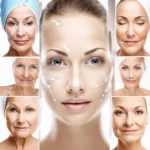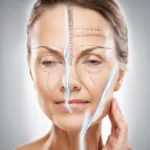11 January 2024
Study Reveals the Potential Benefits of Macrocystis Pyrifera Ferment in Skincare
A recent study published in the Journal of Cosmetic Dermatology suggests that the facial application of ferment derived from Macrocystis pyrifera, a giant sea kelp, and creams containing this ferment may offer anti-inflammatory and anti-aging benefits. The research, funded by La Mer, highlights the potential of this specialized aesthetic skincare ingredient in reducing inflammation and signs of aging. This article delves into the findings of the study, shedding light on the benefits of Macrocystis pyrifera ferment in facial rejuvenation.
Exploring the Anti-Inflammatory and Anti-Aging Properties of Macrocystis Pyrifera Ferment
The study involved a dermatology advisory board that examined the challenges associated with facial rejuvenation skincare and conducted a literature review to assess the evidence of Macrocystis pyrifera ferment’s anti-inflammatory, anti-aging, and healing activity. Preclinical research revealed that the ferment enhances barrier integrity and promotes faster cell migration. Additionally, topical application of the ferment on human skin explants increased collagen production, which is known to decrease with age.
Clinical Evidence of Macrocystis Pyrifera Ferment’s Efficacy
Clinical data on Macrocystis pyrifera ferment demonstrated its anti-inflammatory properties and visible soothing benefits. The ferment was found to significantly decrease erythema, a common sign of inflammation associated with skincare use. Furthermore, two creams containing the ferment were shown to improve various parameters related to visible facial skin aging, including decreased redness. No adverse events were reported during the studies, indicating the safety of the ferment-containing creams.
Enhancing Skin Barrier Strength and Moisturization
The study also examined the effects of Macrocystis pyrifera ferment on the stratum corneum, the outermost layer of the skin. Treatment with the ferment-containing creams resulted in enhanced barrier strength and recovery, as evidenced by increased moisture levels and decreased transepidermal water loss. Repeat insult patch testing showed no sensitization reactions or adverse events in patients who received facial applications of the creams, further confirming their safety.
Limitations and Future Research
While the study highlights the potential benefits of Macrocystis pyrifera ferment, it acknowledges some limitations. The included studies had predominantly small sample sizes, and there is a lack of robust clinical data comparing the effects of different facial rejuvenation skincare products. Additionally, the absence of biomarkers to validate the ferment’s activity calls for further research in this area.
Conclusion:
The research on Macrocystis pyrifera ferment and its inclusion in skincare products demonstrates promising anti-inflammatory and anti-aging properties. The ferment’s ability to enhance barrier integrity, promote collagen production, and reduce inflammation makes it a valuable ingredient in specialized aesthetic skincare. However, further research is needed to validate these findings and compare the effects of different skincare products. As the demand for effective facial rejuvenation skincare continues to grow, the potential benefits of Macrocystis pyrifera ferment offer hope for those seeking natural and innovative solutions.



